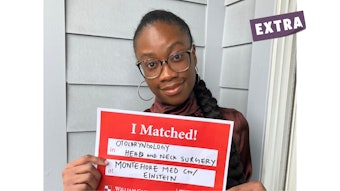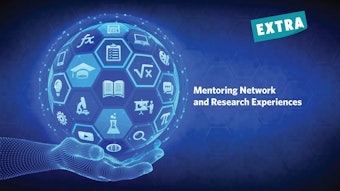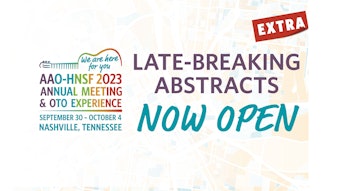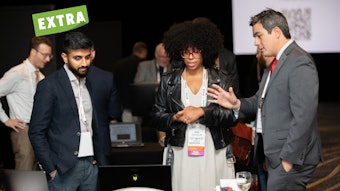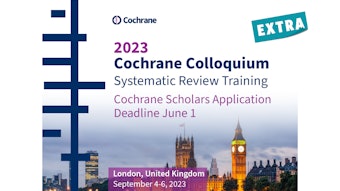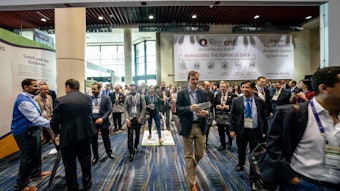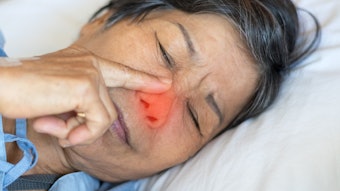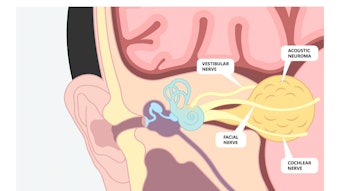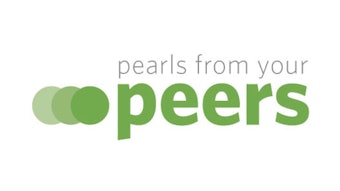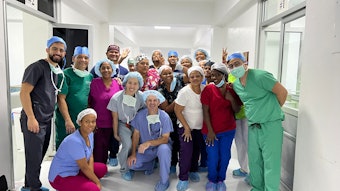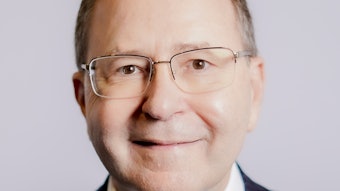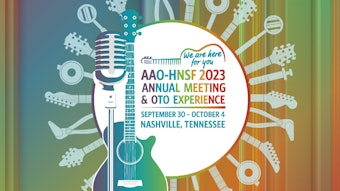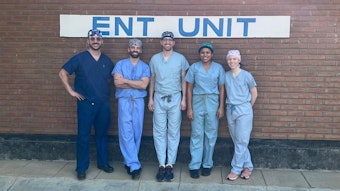The Hearing Portal
A partnership between hearing aid providers and otolaryngologists that will give patients the option of receiving a real-time medical consultation.
Introduction by James C. Denneny III, MD, AAO-HNS/F Executive Vice President and CEO
The process used to fit patients with hearing aids has certainly become more streamlined over the past decade. It has long been a concern that only about 20% of the population in the United States that could benefit from hearing aids actually purchase them. Causative factors include the complexity inherent in the system, inadequate access due to geographic proximity, and long wait times for medical clearance and cost. Ironically, at a time when the treatable causes of hearing loss have increased due to scientific advances, medical clearance requirements in many circumstances have been removed for adult patients. First, it was the Food and Drug Administration (FDA) 10 years ago, and then in 2017 Congress voted to allow the over-the-counter (OTC) sale of hearing aids for adults with mild-to-moderate sensorineural hearing loss, and the FDA did not require any sort of medical examination prior to the purchase of these devices.
The Academy’s concerns about safety as well as ensuring the best treatment for hearing loss patients have been heightened as medical evaluation for appropriateness has been devalued at a time when consumers are left to fend for themselves. In addition to advocating for these safety concerns to be addressed by the FDA, we have produced significant amounts of education products directed at patients with hearing loss. The most effective way to ensure that patients receive the appropriate care for their individual hearing loss is through medical evaluation. Even though that requirement no longer exists for many patients, we feel it is important that patients have an opportunity to obtain a medical evaluation if they so choose.
Medical Hearing Consultants (MHC), through their founder and director, Jeffrey S. Weingarten, MD, recently presented an innovative web-based platform to the Executive Committee of the AAO-HNS Board of Directors that allows a partnership between hearing aid providers and otolaryngologists that will give patients the option of receiving a real-time, telemedicine medical consultation and review of appropriate history, ear examination, audiogram to evaluate the appropriateness of the hearing device for their hearing loss, and a medical clearance if appropriate or recommend alternative management if needed. The Executive Committee voted to sign an Academy Advantage type agreement with MHC.
The Academy feels this has the potential to fill a great need in our communities that will offer patients easy access to a medical opinion to help confirm that they are getting the best care possible. It is worth your time to take a look at this product and see if it would be a valuable adjunct to your current hearing healthcare paradigm.
The Hearing Portal Is a Win-Win-Win Solution for All, Especially the Patient
Jeffrey S. Weingarten, MD
In medicine, quality and access are critical components for achieving excellence in patient care. As the healthcare sector has evolved into a customer service–oriented industry, patient convenience is paramount. Over the past decade, there have been significant changes in the hearing aid industry and medical clearance for the dispensing of hearing aids, from the Food and Drug Administration (FDA) dropping the requirement for physician involvement a decade ago to the 2017 legislation allowing over the counter (OTC) sales of hearing aids to adults 18 years of age or old with mild-to-moderate hearing loss without medical clearance. Over five million hearing aids will be dispensed in 2023, and it is imperative that the patients receiving these devices, especially if there is medically associated hearing loss, have an option to receive physician input concerning their hearing loss and treatment.
The AAO-HNS has represented our discipline vigorously before the FDA and Congress, emphasizing physicians’ value in hearing assessment and the treatment process, particularly recognizing the expanding types of treatable hearing loss. Despite these changes, medical clearance is still required by many insurance companies, governmental programs (e.g., Medicaid), and soon possibly managed care products. Medical clearance may be additionally required for the substantial number of patients presenting to hearing aid providers with asymmetric hearing loss, changing audiograms, ear canal disorders, and other medical reasons. It has been a challenge for patients to get medical clearance, and many do not. This is an undesirable delay or denial of care and demands immediate recognition and intervention.
To address this issue and provide gold (convenience and access) standard hearing healthcare, Medical Hearing Consultants, LLC, developed The Hearing Portal. The Hearing Portal is a web-based, user-friendly, video telemedicine platform linking independent hearing aid providers with independent otolaryngologists for the singular purpose of providing real-time medical clearance for hearing aids. The Hearing Portal has received positive reviews from five major hearing aid manufacturers, the AAO-HNS Board of Directors Executive Committee, hearing aid providers, and others.
The concept and need for this service were validated by statistics indicating that 65%-75% of patients who would benefit from hearing aids never return after leaving a hearing aid provider's clinic with a blank medical clearance form. The failure of the patient to get clearance and hearing aids is attributed to numerous factors, including frustration with the process, lack of caregiver transportation, lack of physician/otolaryngologist access, disabilities, weather, long wait times, and cost. This is particularly concerning for the growing hearing loss community, which includes a large number of seniors. The new OTC market has widened access but also increased confusion for many vulnerable seniors and removed the frequently necessary medical evaluation from the process.
The Hearing Portal concept and process are simple and intuitive. The hearing aid provider identifies the patient desiring or needing medical clearance and creates a web-based encounter through The Hearing Portal. The hearing aid provider takes pictures/images of the patient’s insurance cards, photo ID, audiogram, and auricles and tympanic membranes with the provided 1080p HD imager/camera. They then populate a demographic form, embed the images, complete a comprehensive history questionnaire, and upload this completed Encounter Form into a HIPPA-compliant Zoom waiting room.
All registered otolaryngologists in the state of the hearing aid provider are texted announcing the patient in the waiting room. The Zoom encounter is answered by an available physician, the Encounter Form is reviewed, and a Zoom interview is done. The physician clicks the appropriate diagnostic codes and the medical clearance approval or denial. Both the hearing aid provider and the otolaryngologist then receive a pdf file of the entire encounter including legal forms (HIPPA, telemedicine authorization, billing approval, others). No treatment is expected of identified conditions; this Portal is only for medical clearance at this time.
The Hearing Portal allows for hearing aid dispensing at the time of the initial hearing aid provider clinic visit with a real-time, video telemedicine visit while the patient is in still the hearing aid clinic.
The patient benefits with a same-day dispense; the hearing aid provider does not lose patients (big box store or no hearing help); the physician can bill a video telemedicine encounter based on services provided; the family benefits as they transport the patient to one office visit (dispenser) rather than three (dispenser, physician, dispenser). The physician additionally benefits as there is improvement in the hearing health of the community (including underserved areas statewide) and increased patient volume. Also, the entire completed encounter (demographics, history, exam, diagnosis, and legal) is provided to the physician by the hearing aid provider. If the patient needs medical management, an appointment can be set up with the encounter physician or a local physician. No treatment or testing is expected from this encounter.
The Hearing Portal is a real-time, synchronous, video telemedicine platform that will facilitate medical clearance. We estimate that it could help over 200,000 patients annually who need medical clearance. The Hearing Portal aims to improve hearing health statewide by facilitating better collaboration between hearing aid providers and otolaryngologists. By eliminating barriers to access and providing real-time medical clearance, The Hearing Portal ensures that patients receive high-quality, comprehensive hearing healthcare in a timely manner. Moreover, it expands access to otolaryngologists and addresses the concerns of otolaryngologist access, timeliness, and convenience.
Please review the website and the tutorial demonstration at MedicalHearingConsultants.com.
